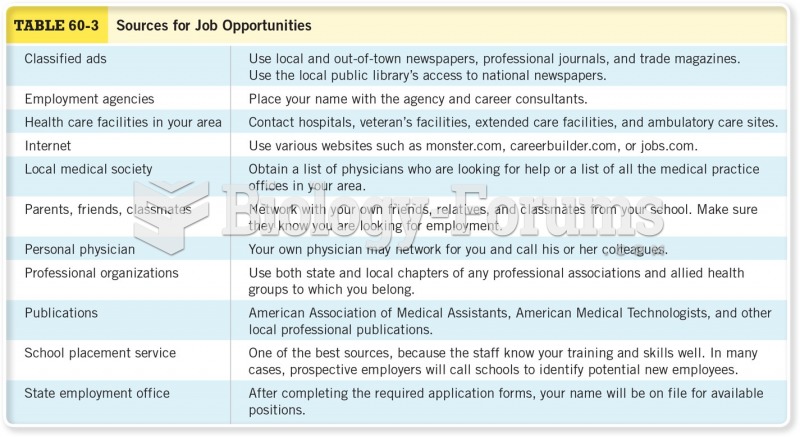Answer to Question 1
Sources that could be consulted in attempting to locate a witness include a telephone directory, a city directory (available in the library or on the Web), and online tools called people finders. Other sources of information include:
Media reports, e.g., newspaper articles and television videos covering the event being investigated.
Court records, such as probate proceedings, lawsuits, and the like. Deeds to property, usually located in the county courthouse.
Birth, marriage, and death certificates.
Voter-registration lists.
The post office, at which the witness may have left a forwarding address. Credit bureaus.
The tax assessor's office.
City utilities, such as the local electric or water company.
Professional organizations may be useful sources as well, if you learn the witness's profession. You might also check with federal, state, or local governmental agencies or bureaus to see if they have information contained in public records that would be helpful in locating the witness.
Answer to Question 2
Authentication is the process of establishing the genuineness of an item that is to be introduced as evidence in a trial.
At trial, an attorney must lay the proper foundation for the introduction of certain evidence, such as documents, exhibits, and other objects, and must demonstrate to the court that the evidence is what the attorney claims. The authentication requirement relates to relevance, because something offered in evidence becomes relevant to the case only if it is authentic, or genuine. Also, the rules of evidence require authentication because certain types of evidence, such as exhibits and objects, cannot be cross-examined by opposing counsel, as witnesses can, yet such evidence may have a significant effect on the jury. The authentication requirement provides a safeguard against the introduction of nonverified evidence that may strongly influence the outcome of the case.
Commonly, evidence is authenticated by the testimony of witnesses. The Federal Rules of Evidence provide for the self-authentication of specific types of evidence. In other words, certain documents or records need not be authenticated by testimony. Certified copies of public records, for example, are automatically deemed authentic. Other self-authenticating evidentiary documents include official publications (such as a report issued by the federal Environmental Protection Agency), documents containing a notary public's seal or the seal of a public official, and manufacturers' trademarks or labels.







